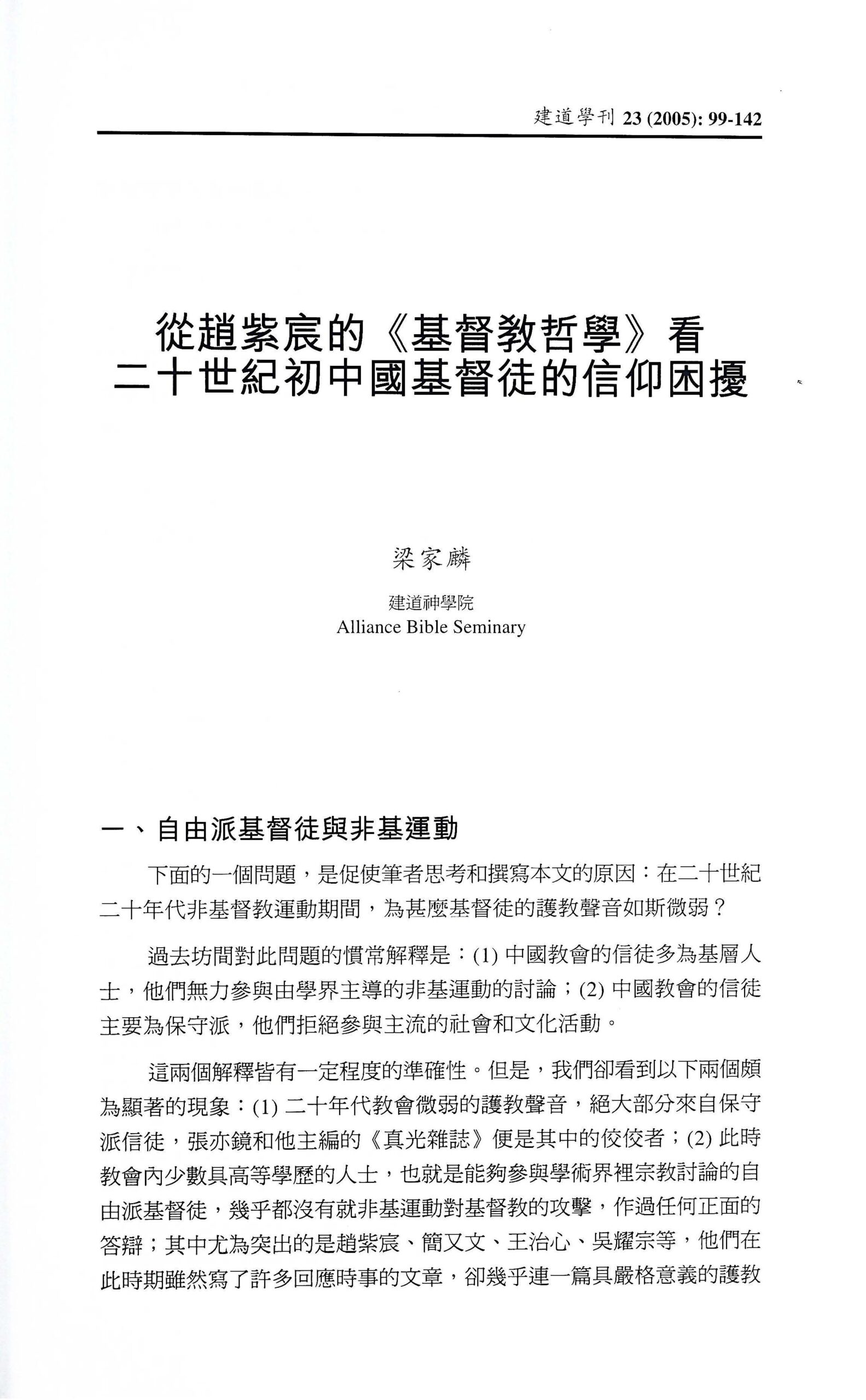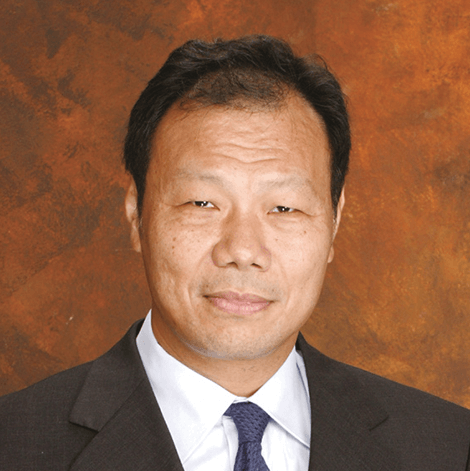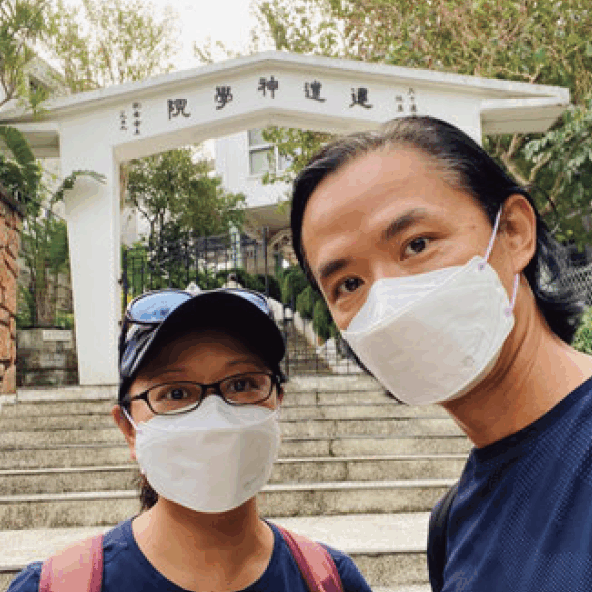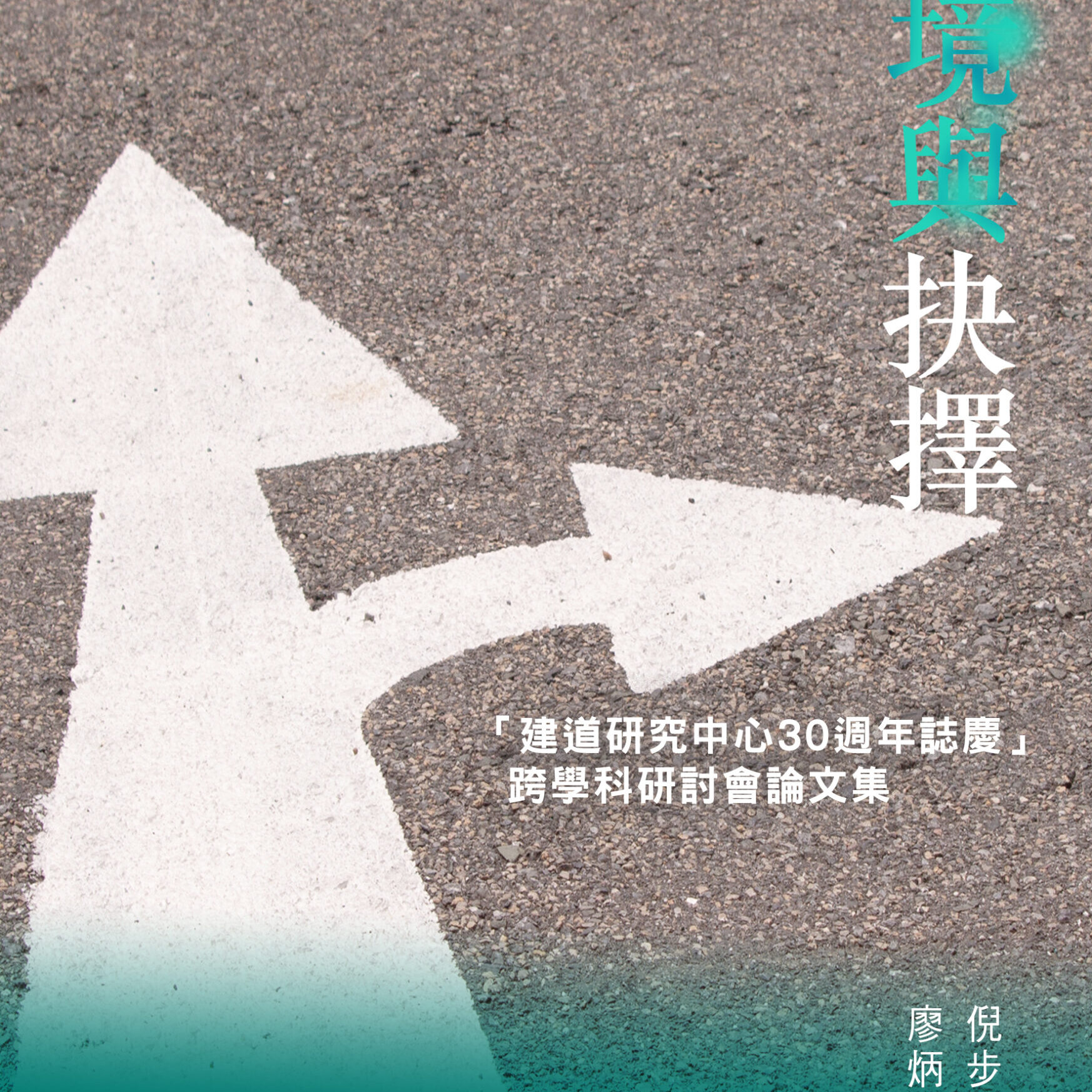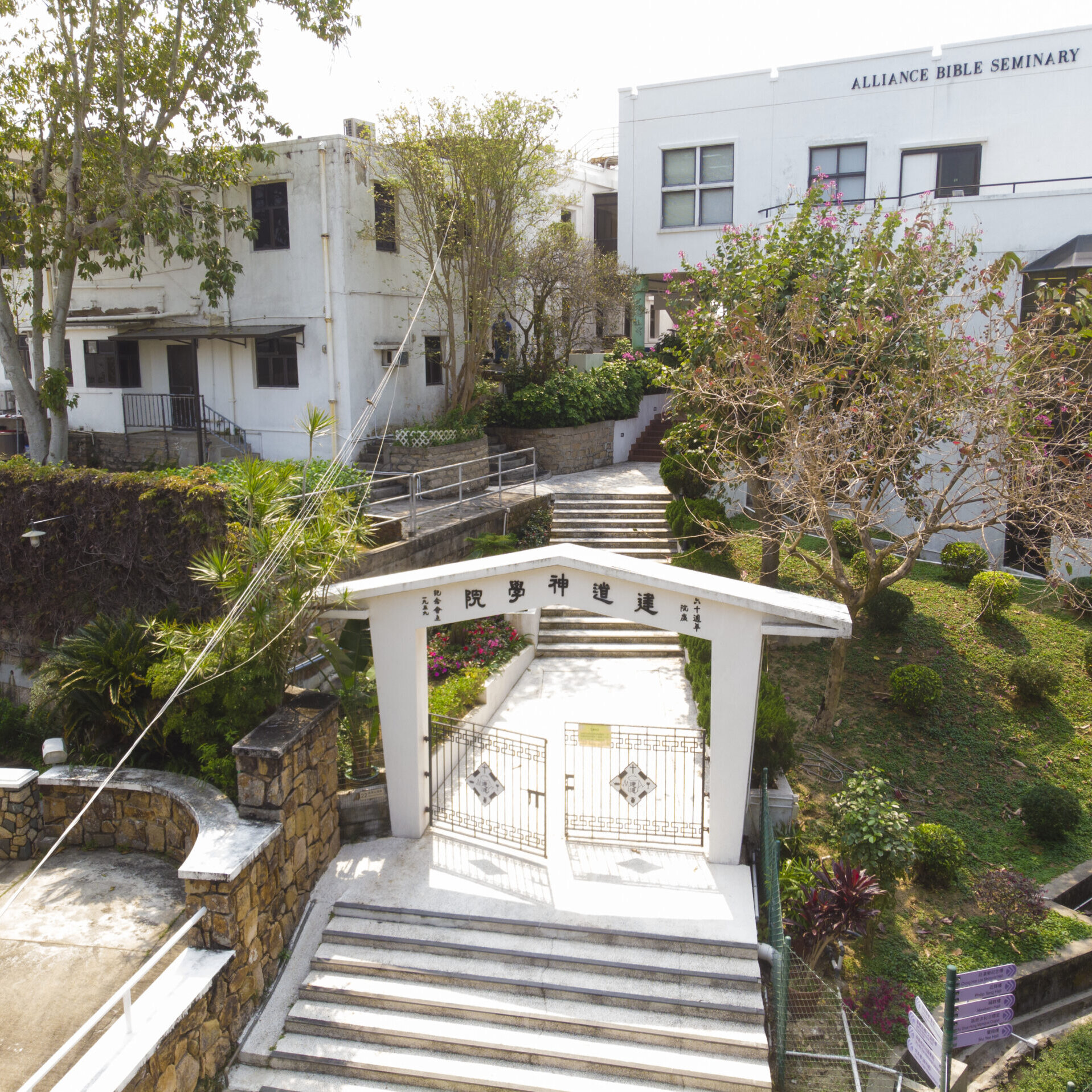從趙紫宸的《基督教哲學》看二十世初中國基督徒的信仰困擾/梁家麟
撮要
本文主要討論一個問題:為甚麼二十世紀初非基運動時期,自由派的基督徒沒有為他們的信仰所面臨的挑戰,作出護教回應?
筆者以趙紫宸在此時期所撰寫的《基督教哲學》為例,指出自由派的信徒所持守的信仰,都是還原主義式的,他們都視由西方傳教士所帶來的信仰型態為不必要,並認為不同時代的人都有權自訂信仰的內容和表達方法。當他們面對非基運動的衝擊時,幾乎都認同非基運動者對基督教的所有指摘,所以沒有產生嚴重的信仰危機。他們最大的困擾,倒在於在主流社會失去影響力。
當時,自由派的基督徒的主要關懷,是救國而非救基督教,而基督教則是他們救國的資源。若基督教失效,他們亦失去在社會裡的角色,所以他們對非基運動的回應,不是對挑戰者作回應,而是因應挑戰者的批評,重訂信仰內容,希冀對方能接納,並共同攜手實踐救國的使命。
ABSTRACT
This paper deals with the following question: When facing the challenges of the Anti-Christian Movement in early twentieth-century China, why did the liberal Christians not engage in the apologetical task of defending their faith? The author takes T. C. Chao and his book Christian Philosophy as an example, pointing to the fact that almost all liberal Christians had a reductionist view in their understanding of Christianity. They regarded the mode of faith brought by Western missionaries as redundant, and argued that Chinese people had the right to decide the content and expression of faith that they were adopting. They echoed with the criticisms against Christianity brought by the Anti-Christian Movement, and thus did not bothered by the Movement. The only thing disturbed them was that they were losing their stand in the mainstream society as Christianity detested by most fellow countrymen. So their response to the Movement was by no means defending the faith but rather initiated a radical scheme of changes in accordance with the criticisms of the adversaries, hoping that the latter would readmit them to the general movement endeavoring to save China.
原載於《建道學刊》23期(2005年1月),頁99-142。
作者簡介
梁家麟
傑出教授
榮譽院長
最新文章
【畢業生分享】重新導航──導引一生的神 / 王雅君
2026 年 1 月 1 日
【畢業生分享】屬靈導引的生命體會——與上主同工的旅程 / 黃芳
2026 年 1 月 1 日
【校本部學生分享】重拾與主同行的節奏——依納爵神操旅程反思 / 鄭家恩
2026 年 1 月 1 日
編輯精選
[電子書]困境與抉擇:「建道研究中心30週年誌慶」跨學科研討會論文集/廖炳堂、倪步曉主編
2025 年 1 月 2 日
從梧州到長洲:建道神學院125年的挑戰與恩典 / 陳智衡
2023 年 10 月 1 日
微小教會的見證/高銘謙
2023 年 6 月 1 日

